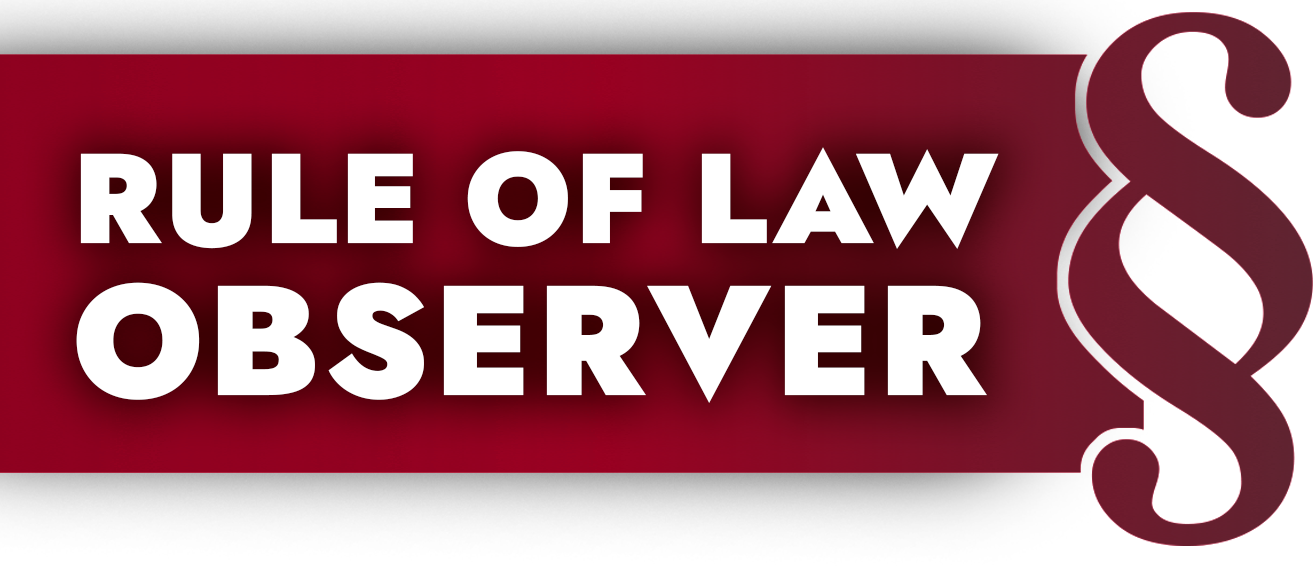Yesterday (6 July 2025), an interview with the Ombudsman, Professor Marcin Wiącek, was published, in which he clearly pointed to the negative impact of the current government’s unlawful actions on the level of protection of the constitutional rights and freedoms of Polish citizens.
Constitutional Tribunal
The Ombudsman was particularly critical of the current government’s practice of not publishing Constitutional Tribunal rulings:
There is no legal provision that would authorise the Prime Minister to assess the legality or validity of rulings referred by the President of the Constitutional Tribunal for publication in the Journal of Laws.
Indeed, as follows from Article 190(2) of the Constitution in conjunction with Article 21 of the Act on the publication of normative acts and certain other legal acts, the publication of Constitutional Tribunal judgments in the Journal of Laws is the duty of the Prime Minister, and failure to do so may in practice significantly impede citizens’ ability to assert their rights.
We are currently facing such a situation, for example in connection with the recently described judgment of the Constitutional Tribunal, repealing the regulation of the Minister of Education, according to which the grade in religion would not be included in the average. Some schools refuse to comply with this judgment and thus do not take into account the grade in religion when calculating the average on the certificate. However, experts from the Ordo Iuris Institute pointed out in their opinion that despite the lack of publication of the ruling, the refusal to include religion grades in the average grade would constitute a violation of the student’s rights and may give rise to administrative and legal claims and claims for damages. It should be emphasised, however, that if the Prime Minister had fulfilled his obligation and published the Constitutional Tribunal’s ruling, citizens would not have had to embark on costly and time-consuming legal proceedings to assert their rights in this regard.
Returning to the interview, the Ombudsman pointed out that the Venice Commission also considered in its opinion that the non-publication of Constitutional Tribunal judgments was unacceptable. The Ombudsman emphasised that, with regard to judgments delivered by panels which did not include judges whose appointment raised any doubts, the failure to publish the judgment is clearly unlawful and unfounded. However, also with regard to judgments delivered with the participation of judges whose appointment had been questioned, the Ombudsman emphasised that it is unacceptable to treat them as ‘non-existent’ – having no legal effect – and therefore they cannot be freely ignored.
The Ombudsman also criticised the current government majority for failing to fill vacancies in the Constitutional Tribunal. He pointed out that:
It is the duty of all public institutions to ensure the continuity of the functioning of state bodies. It is unacceptable for a constitutional body of the state to be rendered inoperable.
Chamber for Review and Exceptional Cases of the Supreme Court
In a similar vein, the Ombudsman commented on the status of the Chamber for Review and Public Affairs of the Supreme Court, pointing out that its judges issue a large number of rulings on matters important from the point of view of citizens’ rights and freedoms, such as awarding compensation for the excessive length of proceedings. The vast majority of these rulings are recognised and enforced by other state authorities, while voices claiming that they do not exist are raised sporadically, almost exclusively by politicians.
The Ombudsman emphasised that:
The statement that ‘the IKNiSP does not exist’ or ‘a ruling issued by the IKNiSP does not exist’ is contrary to the principles of interpretation of law. […] Therefore, the activities of the IKNiSP are legally relevant, and its rulings enter the legal system and have legal effects. At least until they are verified or challenged in the appropriate manner.
He referred to the argument from ‘European rulings’, pointing out that these courts are not competent to produce legal effects such as removing all judges of a given chamber from office. Furthermore, the Ombudsman emphasised that it was precisely the removal of entire groups of judges from office by virtue of a law, as provided for in the draft bill by Minister Bodnar, that would be contrary to the law, including European standards, as pointed out, for example, by the Venice Commission.
Validity of the presidential election
The Ombudsman also pointed out that, according to the law, there is no other option than to convene the National Assembly on 6 August to swear in Karol Nawrocki as President of Poland. This statement was probably a reference to the vague suggestions made by Minister Bodnar that the Marshal of the Sejm might also be able to take other decisions in this regard. The Ombudsman emphasised that even if the resolution of the Extraordinary Review and Public Affairs Chamber of the Supreme Court on the validity of the elections (for which there is no legal basis) were to be ignored, the principle of presumption of validity of elections would still apply. Since the elections were not declared invalid, the law requires that the National Assembly be convened and the newly elected president be sworn in.
As a side note to the recent elections, the Ombudsman announced that he is preparing a report containing proposals for changes to the electoral law aimed at preventing irregularities described by the OSCE Observation Mission, such as the lack of transparency in the financing of campaigns by third parties.
Summary
In summary, the Ombudsman has once again spoken out against the actions and proposals of the current government that are leading to the destabilisation of the state, in particular those that undermine judicial independence and make it difficult for citizens to defend their rights and freedoms.
It should be recalled that the Ombudsman expressed a similar opinion in a press interview given in April this year. He emphasised, among other things, the beneficial nature of the extraordinary appeal institution, which he himself had used on numerous occasions to protect the rights and freedoms of citizens who had asked him to lodge such appeals, and considered the cessation of the publication of Constitutional Tribunal judgments in the Journal of Laws to be unfounded and unlawful.


